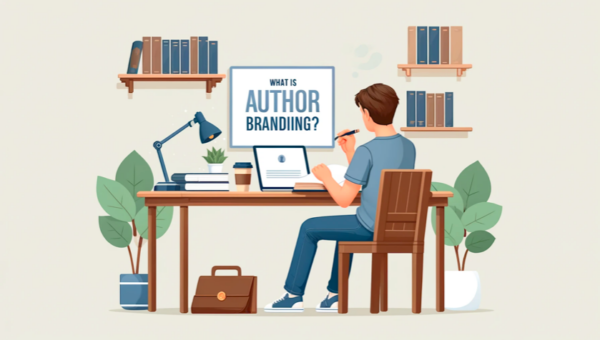Book signings and events hold a pivotal role in the tapestry of an author’s career, serving as vital conduits for direct engagement with their readership. These gatherings not only offer a platform for authors to showcase their latest works but also foster a personal connection with their audience, transforming the solitary act of reading into a communal experience.
The essence of these events lies in their ability to create an intimate space where stories and inspirations are shared, questions are answered, and the invisible barrier between the writer and the reader is momentarily dissolved. Key to the success of these events is meticulous planning, understanding the target audience, effective promotion, and the creation of a memorable experience that leaves a lasting impression on attendees.
As we delve deeper into the nuances and details of organizing book signings and events, we will explore strategies that authors can employ to not only attract a crowd but to also build a loyal following, ensuring that each event becomes a stepping stone towards greater visibility and engagement in the literary world.
Understanding Book Signings and Events
These events are integral to an author’s interaction with their audience, serving multifaceted purposes from marketing to personal engagement. This section will unravel and discuss the definitions, distinctions, and roles of these gatherings in the literary landscape.
Your Publishing Journey Awaits – Start NowDefinition and Purpose
Book Signings: Typically these involve the author autographing copies of their book for fans, often accompanied by a brief talk. The primary aim is to provide a personal touch to the book-buying experience, fostering a connection between the author and their readers.
Book Events: These are more elaborate gatherings that may include readings, discussions, and Q&A sessions. They serve not only to promote the book but also to engage the community in a deeper conversation about the themes, characters, and inspirations behind the work.
The Dynamics of Book Signings and Events
When it comes to connecting with readers, authors have a spectrum of options ranging from intimate book signings to more expansive book events. The scale and scope of these gatherings can vary significantly. Book signings typically offer a more focused and intimate setting, where authors can engage in brief, one-on-one interactions with their fans. These events are often held in bookstores or libraries, providing a cozy and literary atmosphere conducive to personal exchanges and the signing of books.
On the other hand, book events can be grander in scale, incorporating a variety of activities that go beyond simply signing books. These events might include panel discussions, readings, and Q&A sessions, often featuring multiple participants such as other authors, moderators, or speakers. The interaction level at these events is broader and more dynamic, allowing for in-depth discussions and active audience participation.
The settings for such events are equally diverse and can range from large conferences and literary festivals to academic institutions, offering a platform for authors to engage with a wider audience and explore a multitude of literary topics and themes. This variety in format and venue enriches the literary landscape, providing myriad ways for authors and readers to connect and engage over their shared love of books.
Role in Marketing a New Book
- Visibility: Both signings and events raise awareness for a new release, putting the book and author in the spotlight and attracting media attention.
- Direct Sales: These gatherings provide an opportunity for immediate book sales, often boosted by the allure of obtaining a signed copy.
- Word of Mouth: Engaging with positive interactions at signings can lead to attendees to recommend the book to friends and family, expanding its reach.
- Building a Fan Base: Regular signings and events help authors build a loyal following, crucial for the success of current and future works.
- Media and Online Presence: Events, especially those with unique angles or notable speakers, can generate media coverage and content for online promotion, including social media buzz and shareable videos.
In summary, book signings and events are not just about selling books; they’re about creating an experience that enriches the author-reader relationship, enhances the book and author’s market presence, and cultivates a community of engaged readers.
Planning Your Event
Organizing a successful event requires careful consideration of various factors, from the choice of location of venue to the marketing strategy. Here’s how you can plan an event that not only attracts but also delights your audience.
Selecting the Right Venue
Selecting the perfect venue is a pivotal decision in the planning of your book signing event, as it significantly influences the ambiance and overall experience for your attendees. Each other site or potential location offers a distinct atmosphere and set of advantages that can complement the nature of your event.
Local bookstores stand as the quintessential choice for book signings, providing a cozy and intimate backdrop that fosters engaging literary discussions. The familiar, book-lined environment of a bookstore not only enhances the thematic relevance of the event but also appeals to book enthusiasts who appreciate the charm of traditional bookstores for browsing.
Libraries offer another excellent venue option, drawing in a crowd of book lovers with their tranquil and respectful ambiance. The serene setting of a library is conducive to focused engagement, allowing attendees to immerse themselves fully in the discussions and activities of your event.
For a more laid-back and informal setting, coffee shops present an inviting alternative. The casual atmosphere of a coffee shop, combined with the aroma of coffee and the gentle hum of background conversation, creates a relaxed environment perfect for casual gatherings, discussions, and networking.
If your book event calls for something more distinctive, specialty venues such as art galleries, community centers, or outdoor spaces can add a unique flair. These venues can provide a thematic alignment with your book’s content or offer a visually stimulating backdrop that enhances the overall experience for your guests.
Your Publishing Journey Awaits – Start NowSetting the Date and Time
To maximize attendance, consider the following:
- Weekends: Generally, the best time as most people are free from work commitments.
- Evenings: Evening events can attract attendees after work hours during weekdays.
- Local Calendar: Check the local calendar for competing events that might affect your turnout.
- Seasonality: Consider seasonal factors, such as holidays or weather conditions, that might influence attendance.
Collaborating with Local Stores and Venues
Forming a strategic partnership with your chosen venue is a key factor in amplifying the success of your event. When approaching a venue, it’s crucial to come prepared with a well-defined plan that outlines the vision of your event, its potential benefits for the venue, and your expectations from the partnership. Offering incentives to the venue, such as a percentage of sales or a fixed fee, can make the proposition more appealing or by demonstrating how the event could attract new customers to their business and generate additional revenue.
Additionally, proposing a collaborative marketing effort can further enhance the event’s reach and success. By pooling resources and leveraging both your networks, you can create a more impactful promotional campaign, ensuring that the event garners maximum visibility and attendance. This cooperative approach not only strengthens the relationship between you and the venue but also creates a mutually beneficial setup that contributes significantly to the event’s overall success.
Marketing Your Event
Effective marketing can make the difference between an empty room and a full house. Use a multi-channel approach:
- Local Newspapers and Radio Stations: Reach out to local media for event listings or interviews to tap into their audience base.
- Social Media: Use platforms like Facebook, Instagram, and Twitter to create event pages, share updates, and engage with potential attendees.
- Email Newsletters: Send out details to your mailing list, including a brief about the event, venue details, and what attendees can expect.
- Local Community Boards: Post flyers in community centers, cafes, and other local businesses.
- Collaboration with Local Influencers: Partner with local bloggers, book clubs, and influencers to spread the word.
- Event Platforms: List your event on platforms like Eventbrite or Meetup to reach a wider audience.
Remember, the key to a successful book event lies in thorough planning, effective collaboration, and strategic marketing. By choosing the right venue, setting an optimal date, building strong partnerships with local venues, and employing a robust marketing strategy, you can create an event that promotes your book and strengthens your connection with your readers.
Engaging Your Target Audience
A successful library book signing event hinges on your ability to engage your target audience effectively. This involves not just identifying who they are but also devising strategies to capture their interest and encourage their participation.
Identifying and Reaching Out to Your Target Audience
Defining your target audience is the foundational step in engaging potential attendees for your book signing event. Begin by analyzing the appeal of your book, considering factors such as age, interests, demographics, and reading preferences of your prospective readers. Conduct thorough research to identify the platforms where your audience congregates, which could range from online social media groups to offline book clubs and community centers.
Once you have a clear picture of your audience and their hangouts, employ direct outreach strategies. Utilize email newsletters, direct messaging, and personalized invitations to connect with high-interest groups or individuals, ensuring your message is tailored and relevant to their specific interests and habits. This targeted approach helps in effectively drawing in an engaged and interested audience for your event.
Using Social Media Platforms and Local Community Groups
Social media and local community groups are invaluable for creating buzz around your event:
- Social Media Campaigns: Create a consistent, engaging social media campaign using hashtags, teasers about your book, and behind-the-scenes content from your writing process or event planning.
- Engage with Followers: Actively engage with your followers by responding to comments, hosting live Q&A sessions, and sharing user-generated content related to your book.
- Local Community Groups: Partner with local book clubs, writing groups, and community centers to spread the word. Offer to do a reading or short talk at their meetings as a preview to your event.
Preparing Engaging Material
The content you prepare for your event can significantly impact its success:
- Book Summaries and Excerpts: Provide a compelling summary and select intriguing excerpts to read at the event. These should highlight the best aspects of your book and leave your audience wanting more.
- Talks and Presentations: Prepare talks that provide deeper insights into your book’s themes, characters, or the writing process. Make these interactive by inviting questions or incorporating multimedia elements.
- Q&A Sessions: Prepare to answer questions about your book, writing journey, and personal insights. Being open and engaging during Q&A can significantly endear you to your audience.
Engaging your target audience is about creating a connection that extends beyond the event itself. By effectively identifying your audience, utilizing social media and community groups for promotion, and preparing material that captivates and intrigues, you can ensure that your event becomes a memorable experience that fosters a strong, engaged community around your work.
Making a Successful Book Signing
To transform a book signing from just another event into a memorable experience for attendees, it’s essential to focus on personalization, engagement, and strategic book sales. Here’s how you can achieve that:
Personalizing the Signing Experience
Interacting with Readers: Take the time to talk and engage with each person who comes up to have their book signed. Ask each person for their names, inquire about their favorite parts of the book, or what they’re looking forward to reading next. These small conversations make the experience more memorable for the reader.
Signing Books: Personalize each book signing with a short message, not just your signature. If possible, tailor your message to the brief interaction you’ve had with the reader.
Taking Photos: Encourage photos during the signing. Offer to take pictures with readers, which they can share on social media. This not only makes the event memorable but also extends its reach online.
Additional Attractions
Q&A Sessions: Host a Q&A session where attendees can ask questions about the book, discuss your writing process, or discuss your journey as an author. This interaction adds depth to the event and provides valuable insights to aspiring writers and keen readers.
Readings: Select an excerpt or a few compelling excerpts from your book for live readings. Choose an excerpt that is emotionally engaging, humorous, or pivotal to the plot to capture the audience’s interest.
Giveaways: Everyone loves freebies. Offer themed giveaways like bookmarks, a tote bag or bags, or even write a free short story or novella related to your book. These small gifts can leave a lasting impression and act as a token or sign of appreciation for attendees.
Selling Books at the Event
Strategic Placement: Place the books in the store in a visible, accessible location, encouraging the store attendees to pick up a copy before they reach the signing table.
Bundle Offers: Create bundle offers, features such as “buy two, get a discount” or sell the book with related merchandise. This not only increases sales but also provides added value to the buyer.
Easy Payment Options: Ensure you have a simple and efficient system for accepting payments. Nowadays, many people prefer cashless transactions, so having a mobile payment system in place is crucial.
Post-Event Sales: Encourage attendees to buy extra copies of signed books for friends or family who couldn’t make it. Offer to sign and personalize these copies of books as well, making them unique gifts.
By personalizing the signing experience, adding engaging attractions, and employing strategic selling tactics, you can make your book signing event a resounding success. These elements not only enhance the immediate experience but also help in building a lasting connection with your audience, encouraging word-of-mouth promotion and fostering a loyal reader base.
Your Publishing Journey Awaits – Start NowPost-Event Activities
The conclusion date of a book signing event doesn’t signify the end of its utility. Post-event activities can significantly amplify the impact of the event, turning a single day’s efforts into a prolonged marketing campaign and laying the groundwork for future engagements.
Leveraging the Event for Further Marketing
- Sharing Pictures and Videos: Utilize the power of visual content by sharing pictures and videos from the event on social media platforms and your website. Tagging the venue and attendees (with their permission) can increase the reach of your posts and encourage shares, further extending the event’s visibility.
- Capturing Moments: Highlight key moments from the event, such as engaging readings, lively Q&A sessions, or candid shots of you signing books. These snapshots provide a glimpse into the event’s atmosphere, enticing those who couldn’t attend to participate in future events.
- Testimonials: Share positive attendee feedback as testimonials on your website and social media. Authentic attendee experiences can persuade potential readers to explore your work.
Gathering Feedback and Reviews
Collecting feedback during your event using brief forms or digital surveys can yield invaluable insights into its successes and areas needing improvement. Additionally, encouraging attendees to post online reviews of your book can significantly enhance its credibility and allure for potential new readers. Such positive reviews serve as powerful testimonials, amplifying your book’s appeal and broadening its audience reach, making this post-event review activity a crucial element in your overall marketing strategy.
Building a Mailing List
Utilize the event as a golden opportunity to gather contact details from attendees and contact them (with their consent), thereby establishing a valuable mailing list. This list becomes your direct channel for communicating details about future book releases, upcoming events, and engaging newsletters. To incentivize sign-ups, offer exclusive content as a reward, such as access to special materials, a complimentary ebook, or discounts on future purchases. This not only encourages registrations but also fosters a sense of community among your readers, enhancing their connection with your site and your work.
Post-event activities are crucial for maximizing the impact of your book signing event. By effectively leveraging content from the event, gathering attendee feedback, and building a mailing list, you can enhance your marketing efforts, improve future events, and maintain a vibrant connection with your readership.
Conclusion
Organizing successful book signings and events boils down to strategic planning, engaging your target audience, personalizing the experience, and leveraging the event for ongoing marketing efforts. Selecting the right venue, setting a conducive date and time, and employing effective marketing strategies are foundational steps. Engaging your audience with personalized interactions, additional attractions, and strategic book sales techniques can transform a standard event into a memorable experience. Post-event activities, such as sharing event highlights and gathering feedback, extend the event’s impact and foster a stronger connection with your readership.
To authors embarking on this journey, view book signings and events not just as promotional tasks, but as invaluable opportunities to connect with your readers on a personal level. These interactions can enrich your authorial experience, broaden your reach, and build a loyal community around your work. Embrace these events with enthusiasm and creativity, and watch as they open new avenues for your literary career.
Your Publishing Journey Awaits – Start Now







